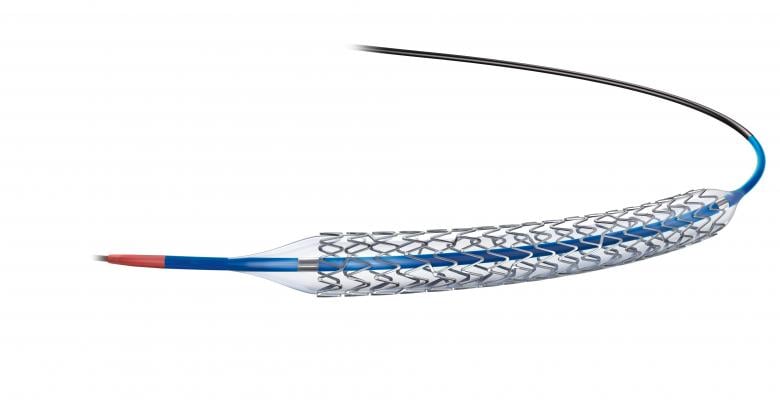
July 22, 2014 — Boston Scientific announced it received U.S. Food and Drug Administration (FDA) approval for the Rebel platinum chromium coronary stent system, the company's latest-generation bare-metal stent for the treatment of coronary artery disease (CAD). Bare-metal stents continue to play an important role in the treatment of CAD and represent a significant portion of the global stent market. The company announced CE mark for the Rebel stent in February.
The Rebel expands the Boston Scientific family of stents featuring its proprietary platinum chromium (PtCr) alloy and a customized stent architecture design. The stent offers the identical stent platform as the Promus Premier drug-eluting stent (DES) but without the everolimus drug.
"Bare-metal stents are an important part of our practice, as not every patient can receive a drug-eluting stent. This new bare-metal stent has the same great visibility and deliverability as the Premier DES but allows me to treat patients who are not candidates for DES therapy," said John C. Wang, M.D., of Medstar Union Memorial Hospital, Baltimore, Md. "In addition, the platinum chromium architecture provides great radial strength with low recoil, which is particularly important in patients receiving bare-metal stents."
The system features unparalleled visibility, low recoil, exceptional radial strength and fracture resistance, while improving axial strength and deliverability. Its enhanced low-profile delivery system also features a shorter, more visible tip, a dual-layer balloon and a Bi-Segment inner lumen catheter designed to facilitate precise stent delivery across challenging lesions.
"Boston Scientific is committed to developing the best treatment options for all patients with coronary artery disease," said Kevin Ballinger, president, Interventional Cardiology, Boston Scientific. "Launching the Rebel stent system in the U.S. is another important step to ensure that we offer physicians the most differentiated and broadest product portfolio possible."
The Rebel is offered in a matrix of 46 sizes, ranging in diameter from 2.25 mm to 4.50 mm and lengths of 8 mm to 32 mm on a Monorail platform. This provides physicians with a range of options designed to best suit patient needs.
For more information: www.bostonscientific.com


 November 14, 2025
November 14, 2025 









